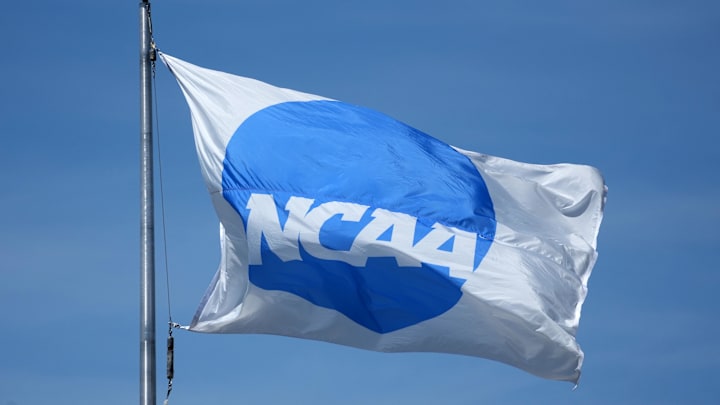Schools are scrambling to understand the new rules stemming from the House vs. NCAA settlement in June, which legalized revenue-sharing in college sports. It also served as a drastic change for NIL, which, since its legalization in 2021, has been used as a pay-for-play tool for big money donors to funnel money to athletes through a collective.
The College Sports Commission sent a letter to schools on Thursday stating it was rejecting deals from donor-backed collectives that had no valid business purpose.
The House vs. NCAA settlement made it clear that direct pay-for-play via NIL would no longer be legal. All NIL deals totaling over $600 must now go through the commission, which must receive evidence that the deal between players and companies provides goods or services to the general public for profit. Meaning, both sides have to get something out of this, and the money going straight from collectives to the pockets of the athletes is a no-go.
A lot of the deals that were sent through by schools could have been for the purpose of testing the waters to see what they could get away with. It will be interesting to see what loopholes are found going forward.
One NIL collective director recently slammed the CSC for a lack of "clear and transparent guidelines." Collectives, administrators, and coaches are understandably frustrated because no one seems to know the rules.
Collectives across the country are beginning to close up shop, or repurporse altogether.
According to ESPN, Alabama, Georgia, Notre Dame, and Colorado-affiliated collectives, among others, have already shut down.
The legality of the College Sports Commission's rejections have already been called into question
Lawsuits will inevitably come as some have already argued that CSC's rejection of collective-based NIL deals violates an existing NCAA bylaw. Setting these guardrails without admitting the student-athletes are employees is another grey area. Some coaches, including Oklahoma State's Mike Gundy, have called for restructuring and collective bargaining.
On Friday, House attorneys sent a letter to the NCAA and power conferences stating that they believe the CSC's rejection of collective-based NIL deals violates the settlement:
In a letter sent to the NCAA and power conferences Friday, House attorneys believe the denial of NIL collective deals violate the settlement, are requesting a “retraction” of the CSC’s guidance & are threatening to report the wrongdoing to the courthttps://t.co/vghr8dnF7Q
— Ross Dellenger (@RossDellenger) July 11, 2025
College athletic programs have found ways to skirt the rules since the days of leather helmets. It's only a matter of time before workarounds are learned.
But until that time, things could get very interesting, especially starting August 1. On that date, high school seniors can begin receiving offers of financial aid and revenue-sharing figures on paper, which up until now have been nothing but verbally agreed to. There's been a lot of money being hypothetically thrown around, and it will be interesting if, in the next few weeks, schools are able to come up with the promised cash.
The clock is ticking, and the CSC is watching.
